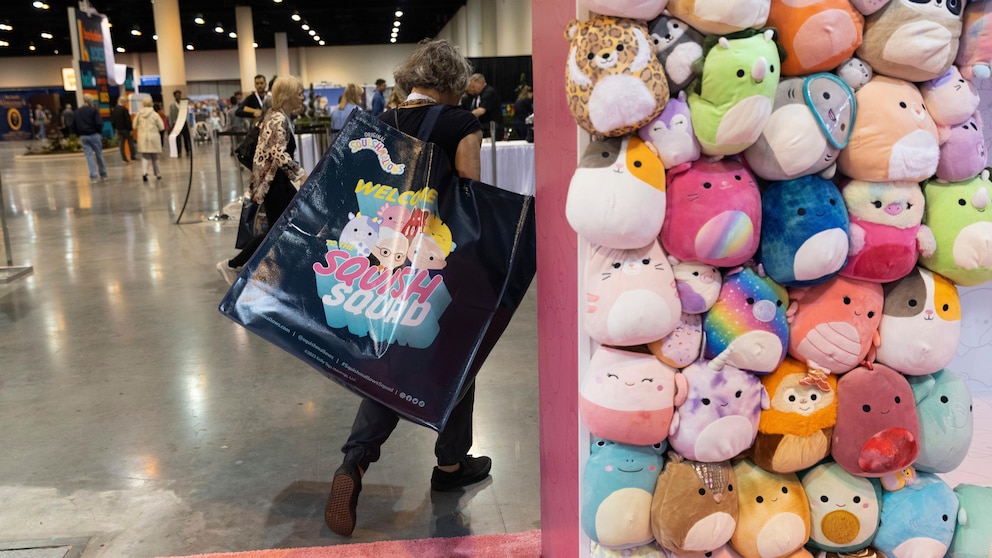Alibaba, the Chinese e-commerce giant, is set to face a lawsuit filed by a prominent US toymaker, accusing the company of facilitating the sale of counterfeit Squishmallows on its platform. The lawsuit alleges that Alibaba has failed to take adequate measures to prevent the listing and sale of these fake products, causing significant harm to the toymaker’s brand reputation and financial losses.
Squishmallows, a popular line of plush toys known for their soft and squishy texture, have gained immense popularity among children and collectors worldwide. The toymaker behind Squishmallows claims that Alibaba’s negligence has allowed counterfeit versions of their products to flood the market, deceiving unsuspecting customers and infringing on their intellectual property rights.
Counterfeit goods have long been a concern in the global marketplace, with online platforms often serving as a breeding ground for such illegal activities. Despite efforts by e-commerce giants like Alibaba to combat counterfeiting, the problem persists, causing significant damage to legitimate businesses and consumer trust.
The lawsuit against Alibaba highlights the challenges faced by companies in protecting their intellectual property rights in an increasingly digital world. The toymaker argues that Alibaba’s failure to effectively monitor and remove counterfeit listings on its platform has not only harmed their brand but also put consumers at risk. Counterfeit products are often of inferior quality and may pose safety hazards, especially when it comes to children’s toys.
Alibaba, which operates several online marketplaces including Taobao and Tmall, has faced similar accusations in the past. The company has implemented various measures to combat counterfeiting, such as investing in advanced technologies like artificial intelligence and machine learning algorithms to detect and remove infringing listings. However, critics argue that these efforts have not been sufficient to address the scale of the problem.
The outcome of this lawsuit could have significant implications for Alibaba and other e-commerce platforms. If found guilty, Alibaba may be required to pay substantial damages to the toymaker and could face increased scrutiny from regulators and consumers alike. It could also serve as a wake-up call for online marketplaces to strengthen their anti-counterfeiting measures and take more responsibility for the products sold on their platforms.
In recent years, governments worldwide have been stepping up their efforts to combat counterfeiting and protect intellectual property rights. This includes stricter regulations, increased collaboration between law enforcement agencies, and the establishment of specialized units to tackle intellectual property crimes. However, the battle against counterfeit goods remains an ongoing challenge, requiring a multi-faceted approach involving all stakeholders, including e-commerce platforms, manufacturers, and consumers.
As consumers, it is crucial to be vigilant when making online purchases and to support legitimate businesses by purchasing from authorized sellers. Recognizing the signs of counterfeit products, such as unusually low prices, poor quality packaging, and misspelled brand names, can help avoid falling victim to scams.
The lawsuit against Alibaba serves as a reminder that the fight against counterfeiting requires continuous efforts from all parties involved. As technology advances and online marketplaces continue to grow, it is essential for companies to prioritize the protection of intellectual property rights and for regulators to enforce stricter measures to deter counterfeiters. Only through collective action can we hope to create a safer and more trustworthy marketplace for consumers and legitimate businesses alike.



